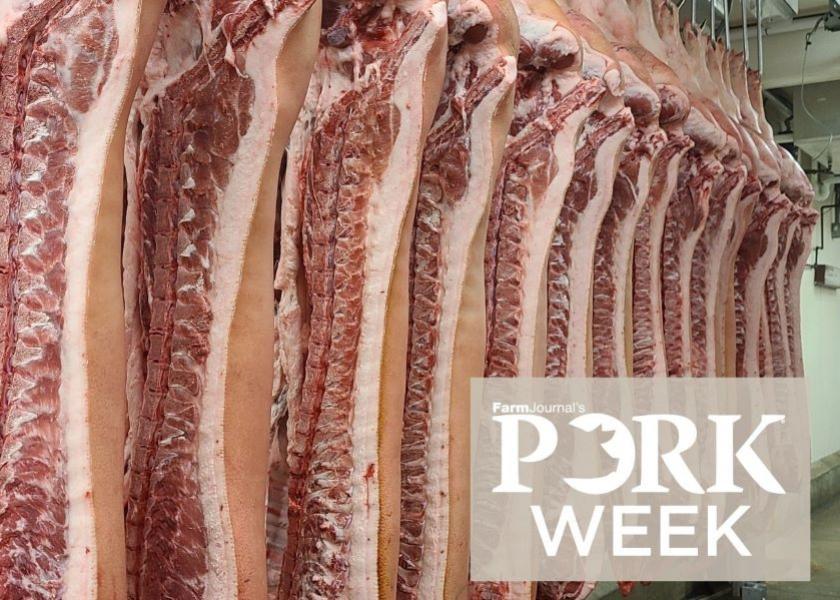Line Speed Ruling: It’s Time to Stick to the Science

Hog producers across the country are discouraged by USDA’s recent decision to turn back time by not appealing the recent federal district court’s decision to remove the provision allowing for faster line speeds in pork packing plants under the New Swine Inspection System (NSIS), said AgriTalk’s Chip Flory.
“I think it's a huge mistake,” Rep. Glenn “GT” Thompson (R-Pa.), ranking member of the House Ag Committee, admitted during the show. “This increasing line speed is in line with what agriculture has always been: technology, innovation and science. And that includes not just the production, but the processing side as well.”
NSIS was initiated during the Clinton administration and has been evaluated at five pilot plants over 20 years. USDA Secretary Vilsack worked for President Barack Obama who also supported the increased line speeds, Thompson said.
“I'm disappointed that this is not being appealed, it needs to be appealed, especially now with the most recent news about cyber-attacks within protein processing. The pandemic alone made it very clear the sensitive linkage between our nation's food processing capacity and food security,” Thompson said.
The Biden administration has repeatedly asserted its commitment to addressing this vulnerability but, Thompson said actions speak louder than words.
“USDA's decision speaks otherwise in terms of walking away from making sure that we have food security, that we avoid any disruption, that we have efficiency,” Thompson added.
The court's decision offered USDA the opportunity to address the situation.
“It would be just minor technical deficiencies within the regulation and would reinforce an otherwise thoughtful and deliberative rulemaking that's taken decades to develop dating back to President Bill Clinton administration,” Thompson said. “But instead, USDA chose a path that was certainly is going to result in an immediate and likely permanent reduction in our nation's food production capacity.”
Is there a chance that that USDA could reverse their decision and appeal? Flory asked.
“I think there's always that opportunity up to a certain point. I strongly encourage USDA to do that – to stay the course that we've followed for literally decades now and embrace what we know about agriculture,” Thompson said. “Farmers and ranchers have benefited from science and technology innovation, as do our processors. Let's stick with the science. I would hope at some point, they would change course from what they've chosen to pursue at this point.”
Read more:
Lawmakers Urge USDA and DOJ to Appeal Pork Line Speed Ruling
Who Will Pay the Cost of Reduced Line Speeds in Pork Plants?
Misguided Ruling Could Upend the Lives of Many Hog Farmers, Sorenson Says
USDA Will Not Appeal Line Speed Ruling in Pork Processing Plants
Judge Denies Seaboard's Motion to Delay Line Speed Limits
U.S. Pork Processor Seeks to Delay Court Decision Limiting Slaughter Speeds
Federal Court Removes Swine Slaughter Line Speed Provision
Union Representing Pork Processing Plant Workers Sues USDA
Industry Groups File Brief in Support of New Swine Inspection System







